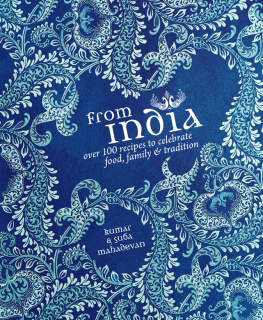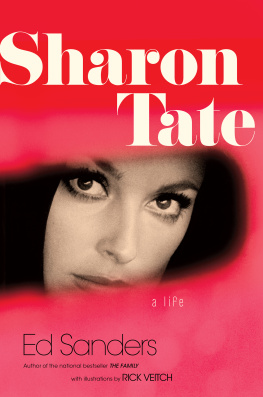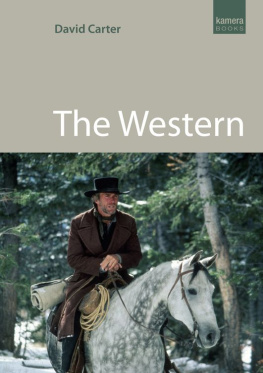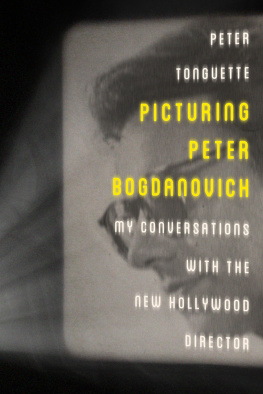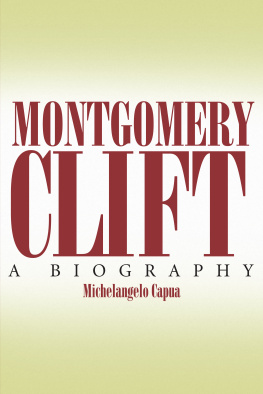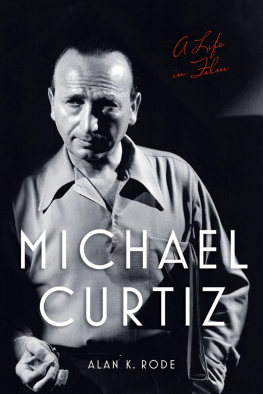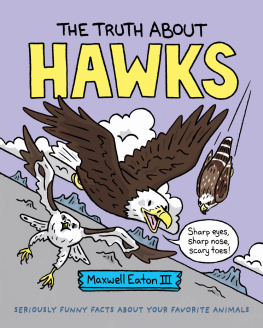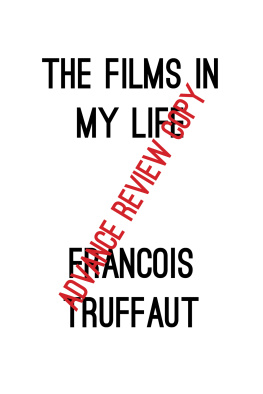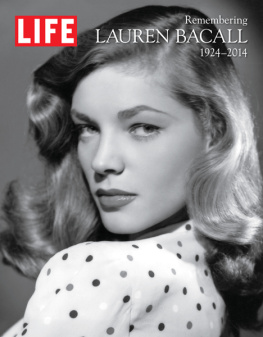Howard Hawks
HOWARD HAWKS
The Grey Fox of Hollywood
TODD McCARTHY

Copyright 1997 by Todd McCarthy
For photo credits, see pages 755756.
All rights reserved. No part of this book may be reproduced in any form or by any electronic or mechanical means, including information storage and retrieval systems, without permission in writing from the publisher, except by a reviewer, who may quote brief passages in a review. Any members of educational institutions wishing to photocopy part or all of the work for classroom use, or publishers who would like to obtain permission to include the work in an anthology, should send their inquiries to Grove/Atlantic, Inc., 841 Broadway, New York, NY 10003.
Published simultaneously in Canada
Printed in the United States of America
FIRST PAPERBACK EDITION
Library of Congress Cataloging-in-Publication Data
McCarthy, Todd.
Howard Hawks : the grey fox of Hollywood / Todd McCarthy.
p. cm.
Filmography: p.
Includes bibliographical references and index.
eBook ISBN-13: 978-0-8021-9640-8
1. Hawks, Howard, 18961977 2. Motion picture producers and directorsUnited StatesBiography. I. Title.
PN1998.3.H38M33 1997
791.430233092dc21
[B]
9649075
Design by Laura Hammond Hough
Grove Press
841 Broadway
New York, NY 10003
TO SASHA AND MADELEINE
Contents
Howard Hawks
Introduction:
The Engineer as Poet
Howard Hawks is the most important of the classical Hollywood directors of whom there has been no biography. Certainly, he has long since emerged from his status as the exclusive property of film cultists and buffs to become recognized as one of the half dozen great American filmmakers whose careers began in the preWorld War II era. At the very least, a dozen of his pictures are as universally admired as any produced by the major studios. He pursued the requisite colorful life filled with sport, drink, and women; befriended the rich, famous, and talented; possessed ego to burn; and lived long enough to, however casually, build and bend the facts of his life into legend.
But the fact remains that Howard Hawks, despite having had his name above the title virtually from the beginning of his career, was never as well known as such contemporaries as Alfred Hitchcock, Frank Capra, John Ford, Cecil B. De Mille, William Wyler, or Billy Wilder. He was only once nominated for an Oscar, which he did not win. Although between 1939 and 1949 Hawks enjoyed a remarkable unbroken string of hits that placed him in the commercial front rank, this success helped brand him as a reliable supplier of entertainment, discoverer of new talent, and director of big stars, not as an American artist of the first caliber. To become a brand-name Hollywood filmmaker in that era, one either had to appear in ones own films (Chaplin, Stroheim, Keaton, Welles), win awards (Ford, Capra, Wyler, McCarey, Wilder, Kazan, Stevens), exclusively specialize in a certain kind of production (Hitchcock, De Mille, Lubitsch, Sternberg for a while), or cultivate a reputation as a social commentator of rare and bold seriousness (Stanley Kramer). Superficially, at least, Hawks specialized in diversity; and since every bone in his body opposed pretension, politics, and pompousness in pictures, the public has always had trouble automatically associating his name with specific films.
Going one step further, the Hawks style is, at a glance, invisible. His films visuals are the least distinctive of any of the major directors, his work less immediately identifiable than that of most masters. Ironically, Hawks was one of the most stylized of all filmmakers, but the stylization had more to do with rituals, behavior, dialogue delivery, performance, and abstracting the action from the real world than with distinctive camera angles, editing patterns, a regular stock company, repeated settings, or anything else that would breed familiarity in the viewer. In other words, the stylization was disguised by a deceptive directness, by humor, by the openness of the characters and the liveliness of the players. This remarkable achievement meant that Hawks would not even be recognized as an artist for much of his career, but in this he was only the most prominent among many.
In the late 1960s a small film magazine published a cover article called Who the Hell Is Howard Hawks? The very title of Robin Woods piece, which appeared in advance of his seminal critical book on the director, mocked the lack of serious appreciation of Hawkss work, a situation that was to be rectified over the following few years. Ironically, Who the Hell Was Howard Hawks? could easily serve as the title for any investigation of Hawks the man. It is far easier to read Hawks, to get a strong sense of what he was all about, through his work than it was in life even for those closest to him. Many people are conveniently called enigmas, but even Hawkss friends referred to him that way. He was Sphinxlike, remote, cold, private, intimidating, self-absorbed, a man with eyes like blue ice cubes. He was, like any director worthy of the profession, crafty and controlling, and he never lost self-control. At the same time, the frigid blue eyes could quickly turn warm and impudent. He was invariably a gentleman of impeccable elegance, taste, judgment, and style, a director of infinite generosity to his performers and crew, a friend of great loyalty, a man of intelligent discrimination. But that there was always a sense of distance, of not really knowing this man, was freely admitted even by those who spent months and years with him.
This distance alone could be enough to discourage any biographer, as could the fact that Howard Hawks was not a man of letters. The few literary exchanges that do exist are remarkably unrevealing and unconfidential, generally dotted by Hawkss apologies for not being a better correspondent. Nor did the director keep diaries, memos, or even helpful datebooks. Simply put, Hawks left no contemporaneous record of what he was thinking, feeling, or doing throughout his life, and the material he did leave behind was spotty and virtually accidental.
For the most part, Hawkss legacy exists in the form of the interviews he so readily granted late in life, in which he expounded to acolytes about his career and accomplishments. To anyone with an interest in his work, or in American films in general, these testimonies are fascinating not only for their anecdotal richness but also as a revelation of Hawkss innate intelligence, of how much thought and theory he put into what were long regarded variously as examples of Hollywood escapism, star vehicles, and assembly-line products. In their own way, however, the interviews create yet another barrier to an accurate view of Hawkss life and career, for they go beyond ego in their self-aggrandizement into an advanced realm of imagination and fantasy. Many people have taken Hawkss beguiling stories at face value, and many of Hawkss tall tales involved people who were already dead for twenty-five years when Hawks related the incidents in which he was, coincidentally, the only surviving witness. When cursory research proved Hawkss versions of events to be exaggerations at best and blatant lies at worst, it served notice that just about everything he ever said would need to be doubted, investigated, corroboratedwhen possible.
But this detour provides its own reward, in the sense that it leads one to the substance of Hawkss nature. That Hawks was a natural storyteller may be a handicap to objectifying his life but a linchpin to defining his character. His disinclination to keep a record of his life anywhere other than in his own head did not represent a deliberate attempt to frustrate later chroniclers, as it has been with certain self-conscious, self-tailoring artists; nothing could have been further from his mind. Hawkss account of his own lifein which everything revolved around him, in which he was always right, in which he told Hemingway, Faulkner, Cooper, Grant, Bogart, Wayne, Hepburn, Bacall, and Monroe what was best for them and told Mayer, Warner, Cohn, Goldwyn, Hughes, Wallis, and Zanuck where to get offwas merely the fantastic flip side of the imagination that went into his film stories.
Next page





